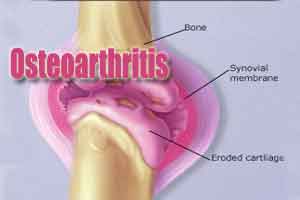- Home
- Editorial
- News
- Practice Guidelines
- Anesthesiology Guidelines
- Cancer Guidelines
- Cardiac Sciences Guidelines
- Critical Care Guidelines
- Dentistry Guidelines
- Dermatology Guidelines
- Diabetes and Endo Guidelines
- Diagnostics Guidelines
- ENT Guidelines
- Featured Practice Guidelines
- Gastroenterology Guidelines
- Geriatrics Guidelines
- Medicine Guidelines
- Nephrology Guidelines
- Neurosciences Guidelines
- Obs and Gynae Guidelines
- Ophthalmology Guidelines
- Orthopaedics Guidelines
- Paediatrics Guidelines
- Psychiatry Guidelines
- Pulmonology Guidelines
- Radiology Guidelines
- Surgery Guidelines
- Urology Guidelines
EULAR Recommendations for Pain Management in Inflammatory Arthritis,Osteoarthritis

European League Against Rheumatism(EULAR) has developed evidence-based recommendations for the health professional’s approach to pain management to empower them to provide knowledgeable pain management support for patients with inflammatory arthritis and osteoarthritis (OA). The recommendations appear in the Annals of the Rheumatic Diseases.
A summary of the recommendations is as follows:
- Pain management assessments should include patient needs and preferences, patient pain characteristics, and current inflammation and joint damage as sources of pain. The following pain-related factors may need additional attention: the extent of pain-related disability, beliefs, and emotions about pain and pain-related disability, social influences related to pain and its consequences, sleep problems, and obesity.
- Patients should receive personalized management plans to help reduce pain and improve pain-related function and participation in daily life. Plans should be guided by shared decision-making, the needs of the patient, the health professional's assessment, and evidence-based treatment options.
- All patients should receive the education. Patients should have access to educational materials, including brochures or links to online resources with encouragement to stay active and sleep hygiene guidelines. Patients should also have access to psychoeducation by the health professional and online or face-to-face self-management interventions.
- Consider a multidisciplinary intervention if more than one treatment options are indicated and if monotherapy failed.
Patients should receive physical activity and exercise recommendation if indicated:
- The clinician and patient should collaboratively determine whether active, supervised physical exercise, or multidisciplinary treatment is indicated.
- Patients should be referred to a physiotherapist for individually graded physical exercise or strength training if the patient is not able to initiate physical activity and exercises without help.
- Consider a multidisciplinary intervention, including cognitive-behavioral therapy (CBT), if psychosocial factors such as fear of movement or catastrophizing cognitions underlie a disabled, sedentary lifestyle.
Patients should receive orthotics if indicated:
- Orthotics, daily living aids, an assistive device, or ergonomic adaptation can be offered if a patient has pain during daily activities and impedes functioning.
- If the patients want assistive support, consider referral to an occupational therapist, who can offer education about appropriate ways to use joints and ergonomic principles, appraise the need for the use of an orthotic or assistive device, give advice about how to acquire assistive support, fit the customized aid to the patient, offer training, and refer the patient to the appropriate specialist.
Patients should receive psychological or social interventions if indicated:
- If psychological factors interfere with effective pain management and functional status, consider providing basic social and psychological management support or referral to a psychologist, social worker, self-management support program, CBT, or multidisciplinary treatment.
- If psychopathology is present, discuss treatment options with the patient and the patient's primary care physician.
A patient should receive sleep interventions if indicated:
- In patients who report sleep disturbance, inquire about causes and offer basic education about good sleep hygiene practices.
- If sleep remains disturbed, refer to a therapist or specialized sleep clinic.
Patients should receive weight management if indicated:
- In patients with obesity, explain that obesity can contribute to pain and disability.
- Discuss accessible weight management options with the patient or refer the patient for appropriate specialized weight management support.
Patients should receive pharmacological and joint-specific pain treatment if indicated:
- Clinicians should ask about the patient's existing use of prescribed and over-the-counter analgesics and consider if the frequency is safe.
- Clinicians should ask or refer for further specialist or medical advice if there are concerns or if additional pharmacological treatment may be indicated.
It is hoped that these recommendations shall enable health professionals to provide knowledgeable pain-management support for people with IA and OA.

Disclaimer: This site is primarily intended for healthcare professionals. Any content/information on this website does not replace the advice of medical and/or health professionals and should not be construed as medical/diagnostic advice/endorsement or prescription. Use of this site is subject to our terms of use, privacy policy, advertisement policy. © 2020 Minerva Medical Treatment Pvt Ltd